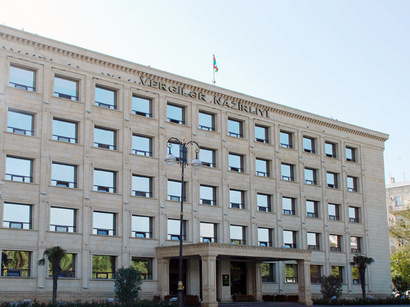Azerbaijan unifies taxation system with EU’s

By Nigar Orujova
Unification of the current tax legislations of Azerbaijan and the European Union (EU) is one of the main conditions for strengthening economic cooperation between two sides, Chief of the Tax Policy and Strategic Studies of the Taxes Ministry Natig Shirinov said in an interview with Taxes (vergiler.az) newspaper.
"It is one of the priorities to accelerate the European integration of Azerbaijan," he said.
"The resolution of this issue is envisaged in the strategic plan for the development of the tax system approved by the Ministry. Preparations are underway in this regard. To this end, the basic requirements for the seven directives in the EU system of indirect taxes have been analyzed and determined," he said.
The harmonization of indirect taxes will affect the mutual trade. Speaking about the direct taxes, Shirinov noted that the types of taxes included in this group do not need to be harmonized.
Since direct taxes- unlike indirect ones- do not have a direct impact on the free movement of capital, goods and services are provided easily. "Direct taxes are determined in accordance with the domestic economic policies of each country," he noted.
"One of the main requirements of the EU is the exemption of educational services from the payment of value added tax (VAT)," Shirinov said.
"In accordance with the requirements of the EU directive, paid education in the country has been freed from VAT since January 1, 2013," he said, adding that currently analysis and discussion are being held to identify opportunities for the application of other EU requirements in areas connected with the differentiation of VAT rates coverage of the excise tax, and with operations that require VAT.
In Azerbaijan, the excise tax is levied on alcohol, tobacco, and petroleum products. To support national production in 2007, an excise tax on motor vehicles was also introduced.
"In recent years, Azerbaijan has also taken steps to introduce electronic payment system with the use of international experience in order to create the advanced National Payment System," Shirinov added.
"In this regard, the Government prepared and submitted project proposals to the relevant legislation, providing for limitations of cash and promotion of non-cash payments in the country. Along with this, in order to provide technical support for a more advanced legal framework for non-cash calculations promotion, negotiations are being carried out with the World Bank representative in Azerbaijan," he said.
On July 1, 2014, the number of POS-terminals in the country amounted to 52,413 units, of which 37,079 units are installed in Baku, while 15,334 are in other cities and regions. The number of POS-terminals as compared to January-June 2013 increased by 15,247 units, or by 41 percent.
E-commerce, integral part of globalization process
Electronic commerce is an integral part of the globalization process, Natig Shirinov said to a local media.
He said, recently the developed countries have entered a new stage of development - creation of a single information society.
"In the entrepreneurship, the changes are reflected in the form of doing business in an electronic format or use of e-commerce," he said.
"Emergence of e-commerce requires regulation of new relations, including compliance with the technical, economic, financial, tax and legal norms, so in recent years in the U.S., Canada, Australia and some European countries are enacting legislations governing e-commerce," he stressed.
"Azerbaijan has also adopted a number of legislative acts regulating economic and legal relations in the process of e-commerce including laws "On Electronic Document and Electronic Signature" and "On Electronic Commerce". Items relating to e-commerce have been included in the Civil Code and the Code of Administrative Violations," he said.
Shirinov also stressed that today the tax control in all areas of business, including e-commerce, is based on the general rules established by the Tax Code.
"But given the specificity of the electronic commerce, the improvement of tax control in this area is one of the most important issues," he said.
"Implementation of activities in order to create the most advanced mechanism of fiscal control in the electronic commerce has already been envisaged. To do this, we study the international experience in this field," he said.
Here we are to serve you with news right now. It does not cost much, but worth your attention.
Choose to support open, independent, quality journalism and subscribe on a monthly basis.
By subscribing to our online newspaper, you can have full digital access to all news, analysis, and much more.
You can also follow AzerNEWS on Twitter @AzerNewsAz or Facebook @AzerNewsNewspaper
Thank you!
